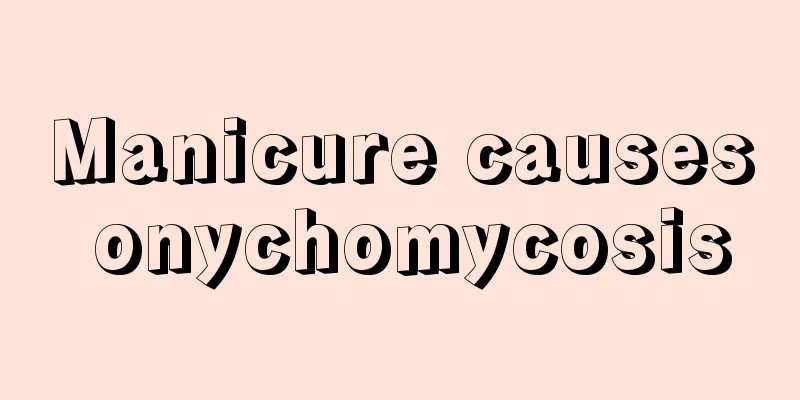alert! These are the high-risk groups for mouse hand tenosynovitis

|
I believe many people have heard of tenosynovitis in their lives. Everyone also knows that tenosynovitis can occur in the joints, and it is most common in the hands. Patients with tenosynovitis are mainly people who often stay in the office and need to type and hold a mouse. Because tenosynovitis is also called mouse hand, patients with hand tenosynovitis usually occur in women aged 40-60. Because men do not use the mouse frequently, or their tendons and bones are relatively stiff, the chance of tenosynovitis will be less. In fact, tenosynovitis is not just caused by long-term use of the mouse. People who need to write, knit sweaters, and engage in special work for a long time are also prone to tenosynovitis. Because the hands are too mobile, and the joints of the hands are relatively fragile, they will cause inflammation if they cannot get timely rest. Tenosynovitis When tendons cross joints, they are bound to the periosteum by tough tendon sheaths to prevent them from bouncing like a bowstring or sliding in two directions. Due to repeated excessive friction, the tendon and tendon sheath become inflamed, edematous, and the fibrous sheath wall thickens to form a narrow ring, making it difficult for the tendon to slide in the sheath, leading to stenosing tenosynovitis. The most common of these is stenosing tenosynovitis of the wrist, also known as "keyboard hand". High-risk groups It is more common in people aged 40-60 years old, with more women than men (8-10:1); people who have acute trauma, long-term repetitive finger movements, such as computer operation, practicing musical instruments, playing with mobile phones, writing documents, knitting sweaters, etc.; as well as people with rheumatoid arthritis, diabetes and other diseases; specifically: middle-aged and elderly women, office staff, orchestral instrument players, light industry workers, etc. are high-risk groups for tenosynovitis. Clinical manifestations: pain, local swelling, and functional impairment are common manifestations Tenosynovitis of the hand Generally, it occurs in the middle finger and ring finger, but as mobile phone users frequently use their thumbs, more and more people are affected. It is more obvious in the morning, and the affected finger shows flexion and extension dysfunction. The pain sometimes radiates to the wrist, there is tenderness at the flexion of the knuckles, and thickened tendon sheaths and pea-sized nodules can be felt. When the affected finger is bent, it suddenly stays in a semi-bent position. The finger can neither straighten nor flex, as if it is suddenly "stuck". After using the other hand to help pull it, the finger can move again, producing an action and sound like pulling a bolt, so it is also called "trigger finger" or "snapping finger". Wrist tenosynovitis There is pain on the outside of the wrist joint, which gradually worsens and makes it impossible to lift objects. During self-examination, when you make a fist and bend the wrist inward, severe pain may occur on the outside of the wrist joint. Plantar tenosynovitis manifests as heel pain; (See Heel pain for details) Inspection method: The main features are typical clinical manifestations and physical examinations, including local swelling, local tenderness, and positive resistance test: the pain will be aggravated when the joint is overextended or overflexed. treat: General treatment: Take adequate rest for at least 3 weeks, and use a splint to fix the affected area if necessary; massage, heat therapy, etc. can also be used. Blocked treatment: Local injection of steroids into the tendon sheath can have significant therapeutic effects; Surgical treatment: When non-surgical treatment is ineffective, tenosynovectomy of the stenosis may be considered. prevention: Note: Wash your hands with warm water, use tools carefully, try not to concentrate your strength on your wrists. If it is unavoidable at work, use a wrist guard and make sure to take proper rest after working for a long time; raise your hands when resting, and avoid letting your arms hang over the edge of the bed when sleeping. |
<<: What are the rehabilitation training methods for cerebral palsy
>>: Tips for cleaning oil stains
Recommend
What are the foods and fruits that lower cholesterol?
High cholesterol is bad for your health, so we ne...
What does a fetus look like at 40 days?
When you are 40 days pregnant, you are in the ear...
What are the complications of kidney cancer?
What are the complications of late-stage renal ca...
Medication Guide for Stage 3 Cancer Pain in Lymphoma Patients
As the disease progresses, patients with lymphoma...
Typical symptoms of prostate cancer
Symptoms of prostate cancer: In the early stages ...
Is mid-term treatment of nasopharyngeal carcinoma serious? How to prevent it?
Nasopharyngeal cancer is very painful. During che...
How long does it usually take for sweat steaming to take effect on weight loss
I believe everyone has heard the word weight loss...
What are the contraindications for breast conservation in breast cancer
There are certain contraindications to breast-con...
What exactly does encephalomalacia mean?
Brain softening lesions are a type of lesion caus...
Self-examination of the clinical manifestations of laryngeal tumors in which aspects
Experts believe that the treatment of laryngeal c...
Prostate cancer prognosis
Prostate cancer is a common malignant tumor in ur...
Can a 10-year-old child get stomach cancer?
The chance of a 10-year-old child developing stom...
Folk remedies for treating epilepsy
Epilepsy is a relatively common disease. There ar...
What are the symptoms of different types of gliomas
Glioma is an unfamiliar disease that many people ...
What are the symptoms of malignant melanoma of the nasal cavity
Nasal malignant melanoma is a rare but highly mal...









